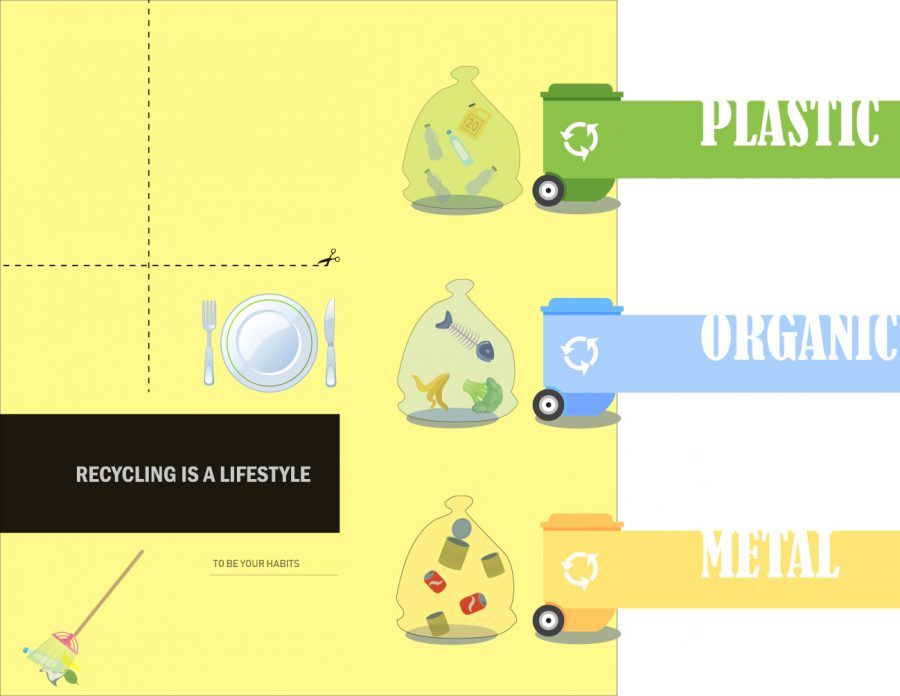OPINION: Everyone on campus should recycle mindfully
Even small amount of garbage can ruin full bin of recycling
FEIRAN ZOU | DAILY EVERGREEN ILLUSTRATION
Due to regulations on what can and can’t be recycled, even a plate of food in a bin of otherwise perfect recycling could potentially be enough to send the whole thing to the landfill.
October 18, 2019
Students at WSU need to pay better attention when it comes to recycling materials. They often assume all plastic is recyclable, given that most plastic cups and bottles have a small recycle logo indented on the bottom when, in reality, this does not automatically make them recyclable.
There are many obstacles that would keep something we would consider “green,” like a plastic cup, from being recycled. One such obstacle is the item’s type of plastic.
Numeric labels from one to seven are stamped onto the bottom of disposable plastics. These labels represent identification that allows materials to be sorted in recycling plants.
Patrick Robichaud, chair of ASWSU’s Environmental Sustainability Alliance, said WSU is only able to recycle materials labeled as a one or a two. Any other identification number is considered contamination and won’t be accepted.
The university cannot sell its recycling when it contains greater than 0.5 percent of contamination. When recycling bails contain excessive contamination, the university must pay to have their materials disposed of in a more expensive and less sustainable way.
Another source of contaminants is dirty plastics. Plastic materials with organic matter on them in any form, such as food or grease, are not recyclable.
“You can’t have food waste or any food particles on whatever you’re trying to recycle because that is organic matter, not the plastic or the metal that you’re trying to reuse,” Robichaud said. “You want to make sure your plastics are clean before you recycle them.”
Because of the excessive contamination in bails across campus, WSU has recently decided to change the qualifications for what belongs in recycle bins. Currently, the transition is being made from accepting cardboard materials, to only plastics labeled one or two, aluminum or steel cans and paper in office buildings.
“Maybe as we get better recycling streams, we’ll add more opportunities to recycle,” said Jason Sampson, assistant director of environmental health and safety, risk management and sustainability.
One surprising example of something that is commonly put in recycling bins but can’t be sold to recycling facilities is pizza boxes. Pizza boxes are typically soaked in grease, which is a contaminant.
Another example is bottle caps. Plastic caps and the small plastic ring that seals caps on bottles are not made out of one or two plastic, thus they should be removed before the bottle is recycled.
Starbucks cups, even though they are labeled with a one, are not as desired by recycling facilities.
“They’re slightly degrading to the plastic supply,” Robichaud said.
The quality of the plastic is reduced when disposable coffee cups are added to the mix.
Overall, students need to take more care in their recycling habits, and avoid mindlessly tossing non recyclable materials into a bin intended for recyclables.
“Contamination usually happens from people that don’t care,” Sampson said. “If you have 100 people that care, all it takes is one person to walk by with their food container, dump it in, and that whole bin went from having value to basically being garbage.”

















